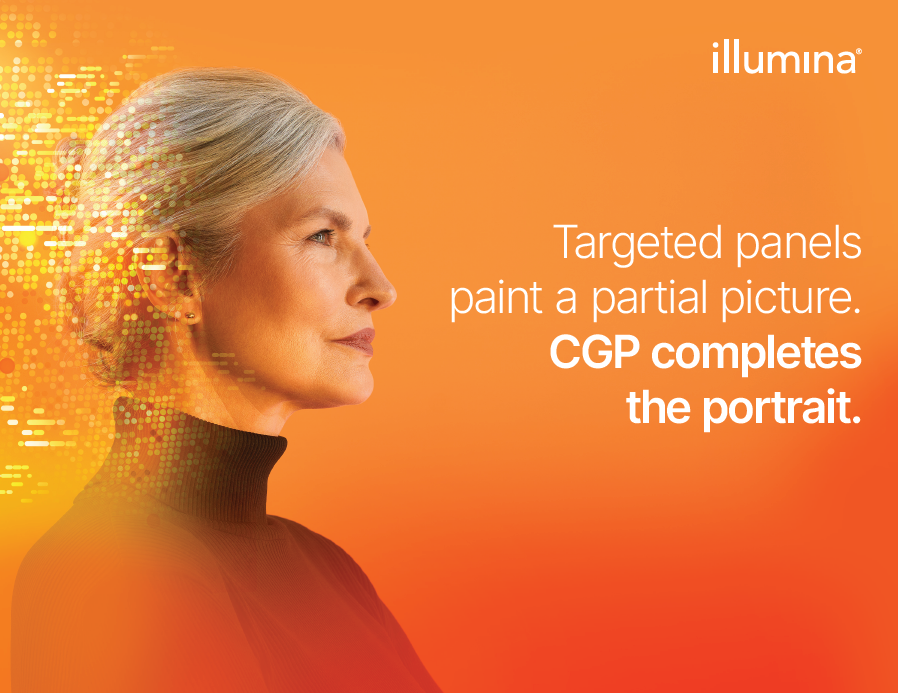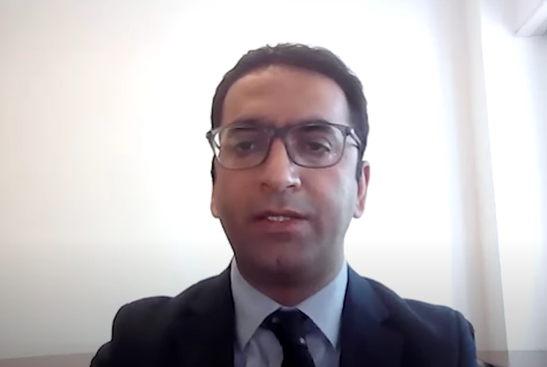
Completing the genomic portrait
Find out more about your patients’ treatment options with the timely and reliable results from Comprehensive Genomic Profiling.1 Unlike small targeted panels, CGP can deliver a full picture of 500+ cancer-relevant genes, as well as genomic signatures (TMB, MSI, and HRD), in a single test. 2,3
CGP for Lung Cancer
Hear from Federico Cappuzzo, MD, Director of Medical Oncology at the National Cancer Institute Regina Elena in Rome, discuss how he is using CGP regularly to help identify the best treatment strategy for his lung cancer patients.
CGP for Colorectal Cancer
Listen to Fortunato Ciardiello, MD, Professor and Director of Medical Oncology at the University of Campania Luigi Vanvitelli in Naples, share his thoughts on how CGP helps him define better prognostic subgroups and therapeutic opportunities for his patients with colorectal cancer.

Take a closer look at CGP
CGP can identify more clinically relevant alterations than conventional testing approaches, such as single-gene tests and small targeted panels. 2-6 Explore more about CGP and the insights it can reveal across various cancer types.
CGP tests broadly to reveal a more complete set of biomarkers and genomic signatures
Patients genomically matched to biomarker-driven targeted therapies or immunotherapies show improved clinical outcomes.4,8,10,11
“[CGP] is something that we are now doing regularly with our patients. We know it is really crucial for defining the best strategy because every single event is associated with a different sensitivity to a specific agent or to a different outcome of the disease.”
Federico Cappuzzo, MD
Director of Medical Oncology
National Cancer Institute Regina Elena, Rome

CGP-powered results are timely and actionable
Using small targeted panels one after another is time-consuming and may place a burden on patients by requiring invasive, uncomfortable rebiopsy. CGP investigates more broadly to obtain a more complete set of biomarker and genomic signature information from blood or tissue samples. By consolidating tests and providing a comprehensive view of relevant genes, CGP maximizes the ability to obtain actionable, timely results.1
“The best advantage is knowing as many gene alterations as possible, and only a comprehensive genomic profiling approach can help us to do this. In fact, we’ve been able to enroll patients in select clinical trials requiring specific molecular target agents only because we did CGP."
Fortunato Ciardiello, MD, PhD
Director, Division of Medical Oncology
Dean, School of Medicine and Surgery
University of Campania Luigi Vanvitelli, Naples




 Upgrade your browser or select an alternate
Upgrade your browser or select an alternate Chrome
Chrome Firefox
Firefox Safari
Safari Edge
Edge